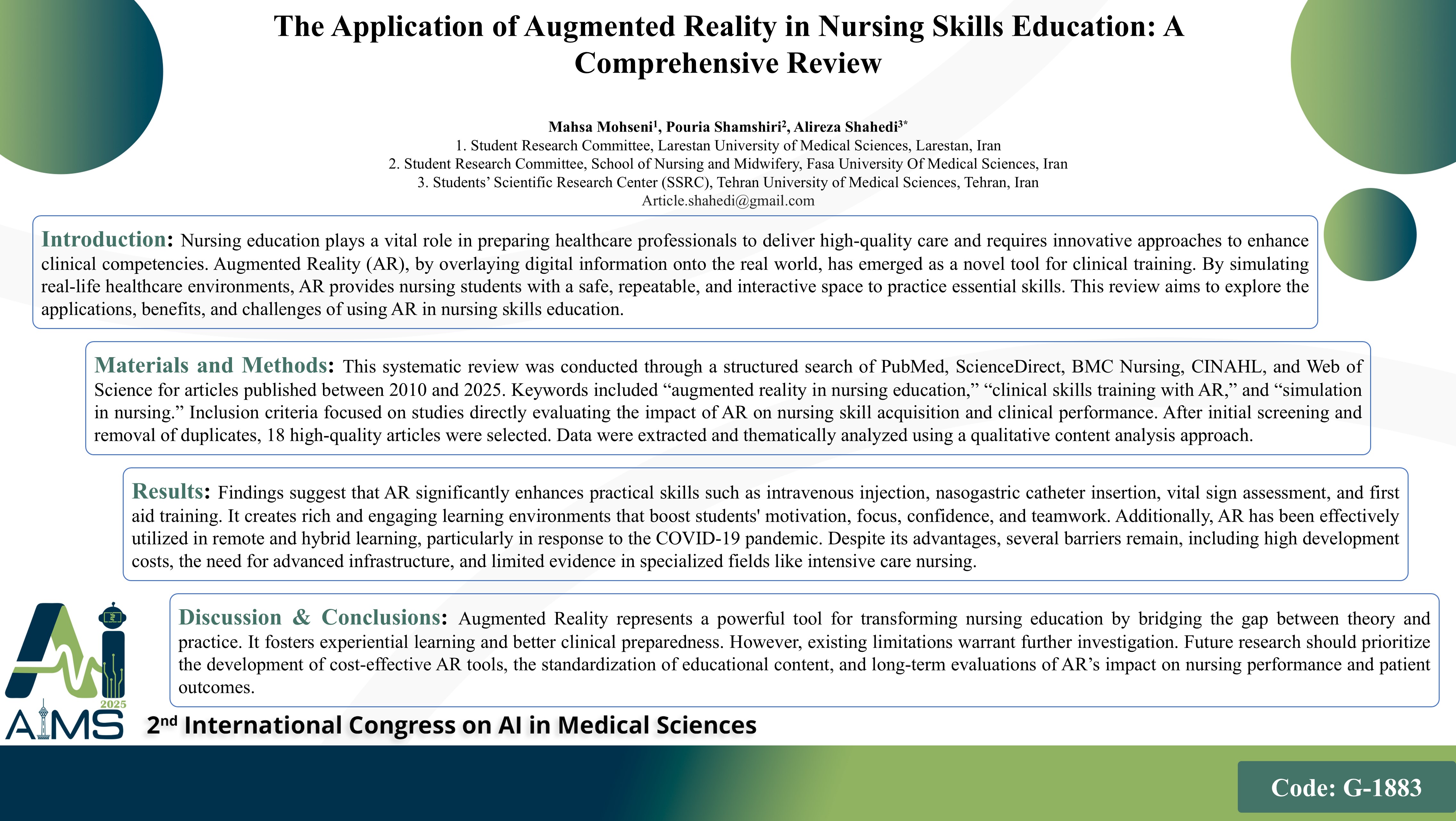کاربرد واقعیت مجازی در آموزش مهارت های پرستاری: مروری جامع
کد: G-1883
نویسندگان: Mahsa Mohseni, Pouria Shamshiri, Alireza Shahedi * ℗
زمان بندی: زمان بندی نشده!
برچسب: رباتیک در جراحی و مراقبت سلامت
دانلود: دانلود پوستر
خلاصه مقاله:
خلاصه مقاله
Introduction: Nursing education plays a vital role in preparing healthcare professionals to deliver high-quality care and requires innovative approaches to enhance clinical competencies. Augmented Reality (AR), by overlaying digital information onto the real world, has emerged as a novel tool for clinical training. By simulating real-life healthcare environments, AR provides nursing students with a safe, repeatable, and interactive space to practice essential skills. This review aims to explore the applications, benefits, and challenges of using AR in nursing skills education. Methods: This systematic review was conducted through a structured search of PubMed, ScienceDirect, BMC Nursing, CINAHL, and Web of Science for articles published between 2010 and 2025. Keywords included “augmented reality in nursing education,” “clinical skills training with AR,” and “simulation in nursing.” Inclusion criteria focused on studies directly evaluating the impact of AR on nursing skill acquisition and clinical performance. After initial screening and removal of duplicates, 18 high-quality articles were selected. Data were extracted and thematically analyzed using a qualitative content analysis approach. Results: Findings suggest that AR significantly enhances practical skills such as intravenous injection, nasogastric catheter insertion, vital sign assessment, and first aid training. It creates rich and engaging learning environments that boost students' motivation, focus, confidence, and teamwork. Additionally, AR has been effectively utilized in remote and hybrid learning, particularly in response to the COVID-19 pandemic. Despite its advantages, several barriers remain, including high development costs, the need for advanced infrastructure, and limited evidence in specialized fields like intensive care nursing. Conclusion: Augmented Reality represents a powerful tool for transforming nursing education by bridging the gap between theory and practice. It fosters experiential learning and better clinical preparedness. However, existing limitations warrant further investigation. Future research should prioritize the development of cost-effective AR tools, the standardization of educational content, and long-term evaluations of AR’s impact on nursing performance and patient outcomes.
کلمات کلیدی
Augmented Reality, Nursing Education, Clinical Skills
